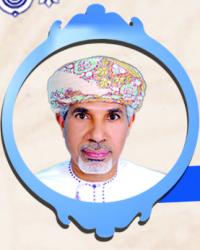“Those who believe, and whose hearts find satisfaction in the remembrance of Allah: for without doubt in remembrance of Allah do hearts find satisfaction” (Qur’an 13:28)
Allah the Almighty informs us in the Noble Qur’an that all His Creation is engaged in His dhikr or remembrance and praise. “Whatever is in the heavens and on earth glorifies Allah. For He is the Exalted in Might, the Wise.” (Qur’an 59:1) In this life, it is only mankind (and jinnkind) who have been given free-will to obey God or disobey Him and follow their own desires. But when we surrender to the Will of Creator, we are guaranteed to achieve complete harmony with the entire universe and to be at peace with ourselves. This is what gives satisfaction to the hearts.
Dhikr is at three levels.
First, the seat of the dhikr is the heart. We should be conscious of the presence of Allah as much as possible and the Qur’an reminds us: “And be not among those who are forgetful.” (Qur’an 7:205)
Second, we should recite His praise and His glory with our tongues in the days and nights. All other forms of worship are quantified as in the times of prayers or the days of fasting or the amount to be paid in charity. But for dhikr, Allah has set no limits. The Qur’an exhorts us to do dhikr as much as possible, “O you who believe! Celebrate the praise of Allah, and do so often.” (Qur’an 33:41) “And celebrate the praises of Allah often (and without stint) that you may prosper.” (Qur’an 62:10).
Third, dhikr is not only with heart and tongue but our actions should also manifest what we think and say. The Qur’an reminds us: “O you who believe! Let no your riches or your children divert you from the remembrance of Allah. If any act thus, the loss is your own.” (Qur’an 63:9)
Through dhikr we establish our relationship with the Creator and it becomes the source of our strength. In a Hadith Qudsi related by Abu Hurairah, the Prophet (peace be upon him) said, Allah the Almighty says: “I am as My servant expects Me to be. I am with him when he makes mention of Me. If he makes mention of Me to himself, I make mention of him to Myself; and if he makes mention of Me in assembly, I make mention of him in assembly better than it. And if he draws near to Me a hand’s span, I draw near to him an arm’s length; and if he draws near to Me and arm’s length, I draw near to him a fathom’s length. And if he comes to Me walking, I go (metaphorically) to him at speed.” (Bukhari and Muslim) How fortunate we are that if we remember Allah, He remembers us and if we remember Him in gathering He remembers us in a better gathering of angels. This should motivate us to engage in dhikr as much as possible.
Dhikr acts as regulator and control mechanism in our lives. Remembrance of Allah keeps us on the straight path. If we deviate from the straight path, remembrance of Allah will bring us back to the right path. The Qur’an says about Prayer (which is a higher form of dhikr): “Indeed Prayer restrains one from shameful and unjust deeds.” (Qur’an 29:45) The Qur’an reminds us of the journey we are toiling towards our Creator, “O mankind, Verily you are ever toiling on towards your Lord — painfully toiling — and you shall meet Him.” (Qur’an 84:6).
Thus, dhikr helps a person to keeps his or her eyes on the destination. The journey is arduous and the distractions are many — Satan and our own desires are constantly trying to steer us away from our goal. But a vigilant and wise person will never lose sight of his or her destination. Such is the person who engages in the dhikr of Allah all the time.
Finally, a short story to underline the importance of dhikr. The shepherd was approached by a lone traveller in the desert. “I am hungry and have ran out of food. Could I milk one of your sheep?” The shepherd replied that he was not the owner of the sheep and could not let anyone milk them without the owner’s permission. The traveller had an idea: “Why don’t you sell one of them to me. When the owner asks, you can tell him that a wolf killed it. Wolves attack the herds all the time. I’ll satisfy my hunger. You’ll get the money. We’ll both profit.” The shepherd strongly refused saying: “But what about Allah!” Strangely, the traveller was pleased to hear that. “As long as there are people like you in this Nation, wolves won’t kill the lambs,” he said. The shepherd was, of course, not aware that he was talking to the Caliph Umar who kept his finger on the pulse of the Nation. It was the spontaneous, natural reaction of a Believer who remembers Allah, and the comment came from the person who knew the value of that remembrance. Today, we find wolves killing the lambs everywhere all the time because most of us have moved away from that remembrance that was protecting us.
By: Hafidh bin Saif Al-Rawahy
hafidh.alrawahy@gmail.com




